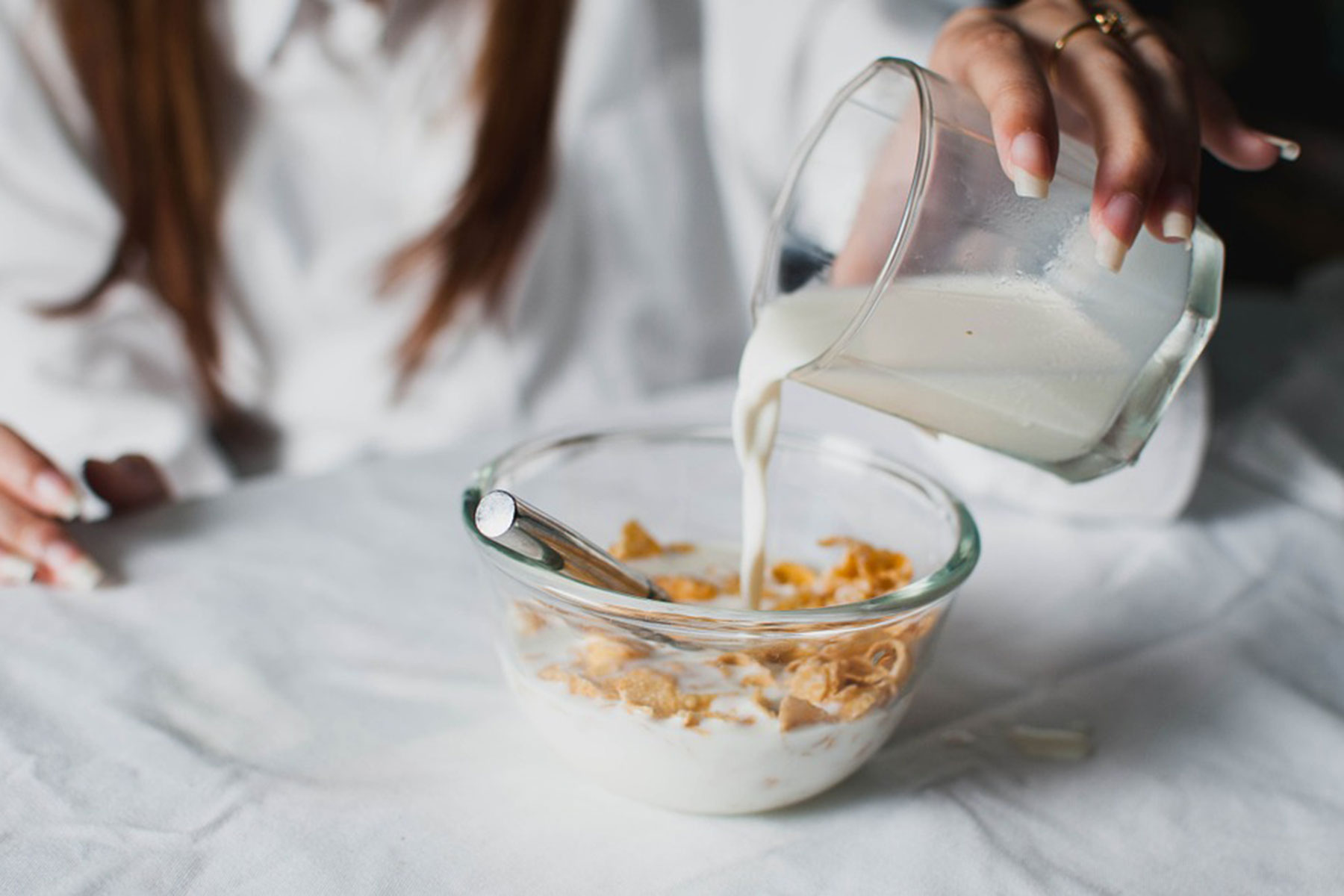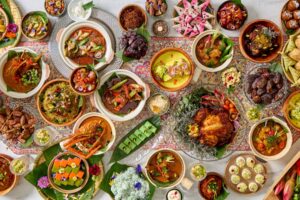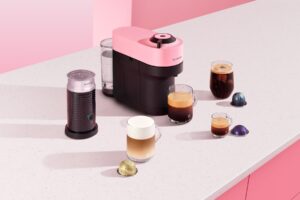Shockingly enough, cereals and fruit juices are two big no-no’s.
You probably already know that breakfast is the most important meal of the day; it helps us replenish our glucose levels and keeps us energised throughout the day.
What you may not know, however, is that there are some foods we shouldn’t eat for breakfast or on an empty stomach – and we’re not just talking about our Malaysian favourites like nasi lemak or roti canai.
Shockingly enough, supposedly healthy foods such as cereals and fruit juices are two of the items on the list. ACE certified personal trainer and host of the B Fit B Cool podcast on Ais Kacang Delicious Audio hub, Denise Tan shares with us seven surprisingly common foods that we should avoid eating for breakfast.
Fruit juice
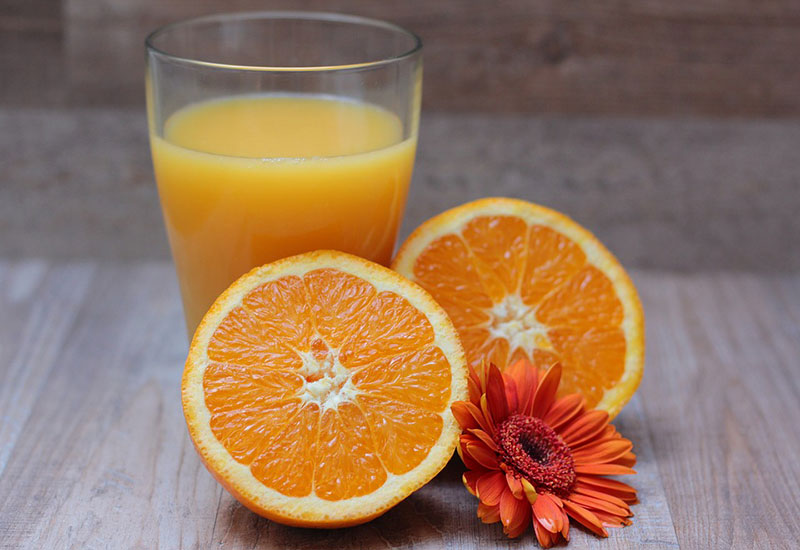 Some of us, especially when on a diet, would opt for fruit juice in the morning, thinking we’re giving ourselves a healthy boost for the day. But according to Denise, one glass of fruit juice requires a lot of fruits, which adds up to too much sugar and a lack of balance of other nutrients like protein and fibre. Imagine, you may eat one or two oranges to be full, but to make a glass of orange juice, you will need about three to four oranges. The amount of sugar, albeit natural fructose, is too much and doesn’t make for a well-rounded breakfast. Opt instead for: lemon water or fruit-infused water.
Some of us, especially when on a diet, would opt for fruit juice in the morning, thinking we’re giving ourselves a healthy boost for the day. But according to Denise, one glass of fruit juice requires a lot of fruits, which adds up to too much sugar and a lack of balance of other nutrients like protein and fibre. Imagine, you may eat one or two oranges to be full, but to make a glass of orange juice, you will need about three to four oranges. The amount of sugar, albeit natural fructose, is too much and doesn’t make for a well-rounded breakfast. Opt instead for: lemon water or fruit-infused water.
Health bar
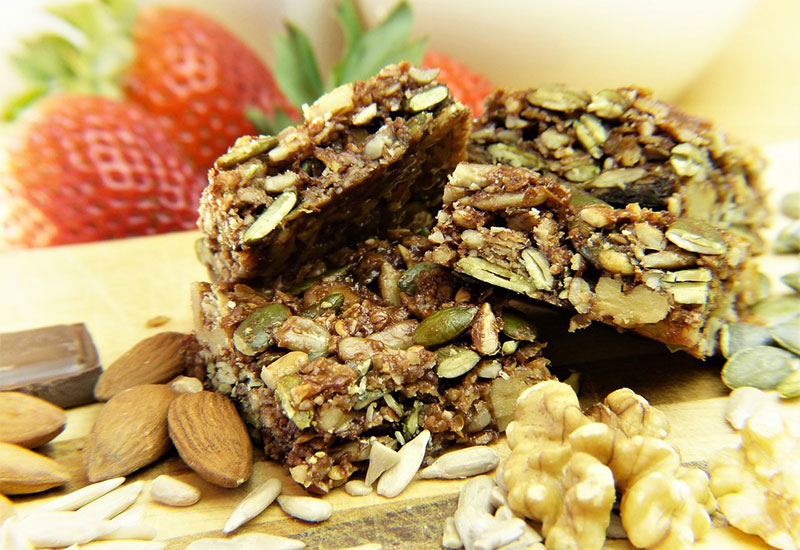 Granola bars, muesli bars, cereal bars, or in short, ‘health bars’, may seem like the perfect breakfast meal on-the-go. It’s fast, convenient, and healthy, right? Wrong, at least on the healthy part. These bars are usually glued together by sugar, as you can tell from their glistening surface. One small bar can be around 200-300 calories which is equivalent to about two bowls of rice. That means you’re essentially consuming a lot of carbs and sugar with little to no protein. Opt instead for: Fruits or natural trailmix.
Granola bars, muesli bars, cereal bars, or in short, ‘health bars’, may seem like the perfect breakfast meal on-the-go. It’s fast, convenient, and healthy, right? Wrong, at least on the healthy part. These bars are usually glued together by sugar, as you can tell from their glistening surface. One small bar can be around 200-300 calories which is equivalent to about two bowls of rice. That means you’re essentially consuming a lot of carbs and sugar with little to no protein. Opt instead for: Fruits or natural trailmix.
Cereal and quick oats
 Like ‘health bars’, the amount of sugars and calories in cereals are actually very high (which probably explains why kids love it). Even instant oat cereals are high in sugar for better taste, so don’t be fooled by their ‘healthy’ packaging. If you love yourself a good oatmeal breakfast, try rolled oats instead as you can control the amount of sugar you add into your bowl. Denise also recommends checking nutrition labels for cereals and oats with high fibre and low sugar content.
Like ‘health bars’, the amount of sugars and calories in cereals are actually very high (which probably explains why kids love it). Even instant oat cereals are high in sugar for better taste, so don’t be fooled by their ‘healthy’ packaging. If you love yourself a good oatmeal breakfast, try rolled oats instead as you can control the amount of sugar you add into your bowl. Denise also recommends checking nutrition labels for cereals and oats with high fibre and low sugar content.
Yoghurt and smoothie
 The danger of substituting a breakfast meal with a fruit smoothie is similar to that of fruit juice – there’s simply too much sugar in it. Denise says a mid-sized smoothie bowl without any toppings is about 400 calories; add granola, nuts, coconut flakes etc. and it usually goes up to 700 calories. The average person will need to jog for about 90 minutes to burn the latter amount of calories. Plus, the hydrochloric acid in your stomach will kill the healthy bacteria from the yoghurt when eaten on an empty stomach, so you won’t necessarily absorb its benefits. That said, you can still have your yoghurt or smoothie bowl but the key is moderation: Balance it with just the right amount of toppings and don’t overeat, as wholesome as it may seem.
The danger of substituting a breakfast meal with a fruit smoothie is similar to that of fruit juice – there’s simply too much sugar in it. Denise says a mid-sized smoothie bowl without any toppings is about 400 calories; add granola, nuts, coconut flakes etc. and it usually goes up to 700 calories. The average person will need to jog for about 90 minutes to burn the latter amount of calories. Plus, the hydrochloric acid in your stomach will kill the healthy bacteria from the yoghurt when eaten on an empty stomach, so you won’t necessarily absorb its benefits. That said, you can still have your yoghurt or smoothie bowl but the key is moderation: Balance it with just the right amount of toppings and don’t overeat, as wholesome as it may seem.
Kaya and butter toast
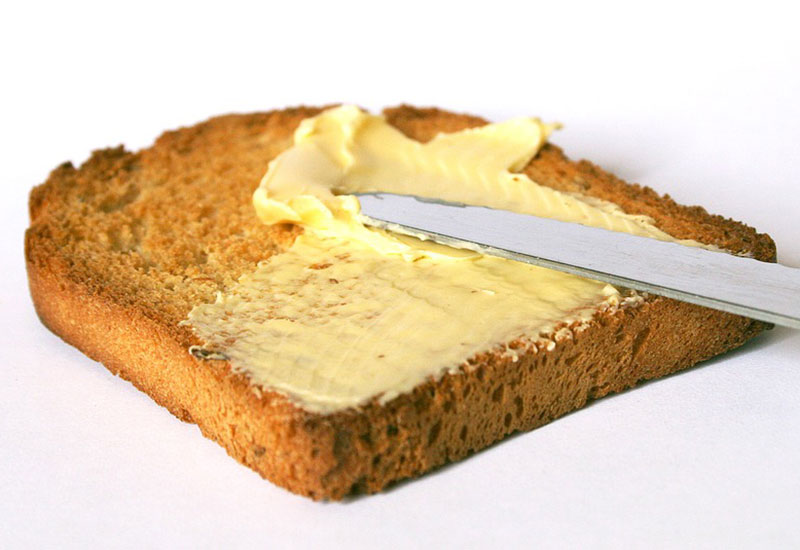 Carbs, sugar and fats – those are almost all you get from a slice of kaya and butter toast. To add protein to the picture, Denise suggests substituting kaya or butter for homemade peanut butter or any peanut butter with less sugar and sodium content. Alternatively, complement your toast with one or two soft boiled eggs.
Carbs, sugar and fats – those are almost all you get from a slice of kaya and butter toast. To add protein to the picture, Denise suggests substituting kaya or butter for homemade peanut butter or any peanut butter with less sugar and sodium content. Alternatively, complement your toast with one or two soft boiled eggs.
Sausage, bacon, and ham
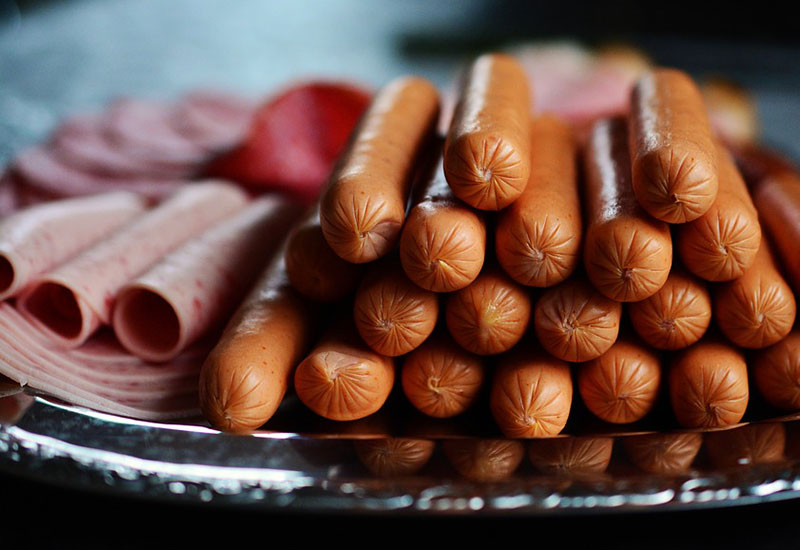 The smell of sausages, bacon and ham is undoubtedly very welcome in the morning, but if we actually stop to consider, we don’t really know where the meat is coming from. Processed meats are usually made from organs, skin and fats of animals, which means there’s very little actual meat and healthy protein in there. In fact, processed meats are known to increase the chances of heart diseases. Try to eat what you can see (i.e. real meat) or at least eat them in small amounts and supplemented with healthy fruits and vegetables.
The smell of sausages, bacon and ham is undoubtedly very welcome in the morning, but if we actually stop to consider, we don’t really know where the meat is coming from. Processed meats are usually made from organs, skin and fats of animals, which means there’s very little actual meat and healthy protein in there. In fact, processed meats are known to increase the chances of heart diseases. Try to eat what you can see (i.e. real meat) or at least eat them in small amounts and supplemented with healthy fruits and vegetables.
Coffee (just coffee)

Don’t misunderstand, there’s nothing wrong with drinking coffee during breakfast, but definitely don’t drink coffee alone as breakfast. The caffeine boost may jolt you up, but it will not sustain you for the rest of the morning and does not provide sufficient nourishment. You may end up eating junk by mid morning, so it’s always better to take your cuppa with a proper breakfast or pack a sandwich if you’re in a hurry.
For more information on health and fitness topics, tune in to Denise’s podcast every Friday on the Ais Kacang website here or follow her on her Instagram (@denise_tkj).




